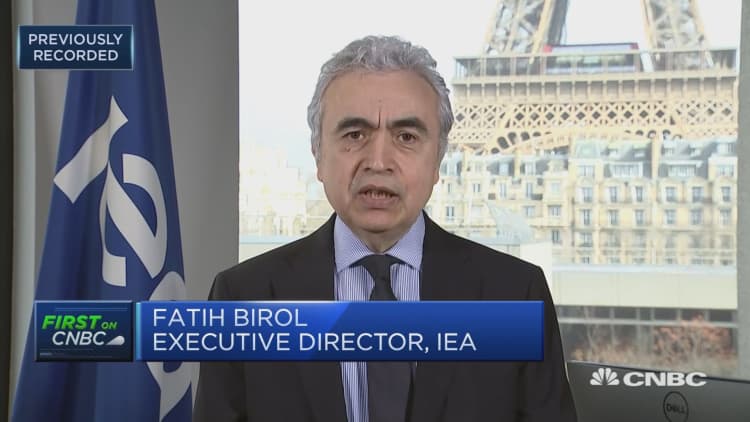The IMF's chief economist urged policymakers to implement "substantial" fiscal and monetary policies to help consumers and businesses cope with the economic harm of the coronavirus outbreak.
In a blog post published Monday, IMF chief economist Gita Gopinath said the human costs of the coronavirus epidemic have risen "at an alarming rate." She said governments should consider measures like cash transfers, wage subsidies or tax relief, while central banks should be prepared to provide liquidity to banks and companies, as the epidemic disrupts supply chains and consumer demand around the world.
"The goal is to prevent a temporary crisis from permanently harming people and firms through job losses and bankruptcies," Gopinath wrote.
The World Health Organization has reported more than 100,000 cases of the coronavirus globally, resulting in more than 3,600 deaths. The virus has disrupted global manufacturing and rattled financial markets.
"Broader monetary stimulus such as policy rate cuts or asset purchases can lift confidence and support financial markets if there is a marked risk of a sizable tightening in financial conditions," Gopinath said.

Last week, the Federal Reserve announced a surprise rate cut of 50 basis points to try to support the economy as the virus spreads. Gopinath said central banks should be prepared to provide financial assistance to small- and medium-sized enterprises which may be "less prepared to withstand a sharp disruption."
"On the demand side, the loss of income, fear of contagion, and heightened uncertainty will make people spend less," she added.
Gopinath also pressed governments to implement measures like wage subsidies, paid sick leave or tax relief to assist companies and individuals affected by the spread of the epidemic. The IMF announced last week it would make $50 billion in financing available to bolster health care systems and emergency responses in low-income and emerging countries suffering from the virus.
"The international community must help countries with limited health capacity avert a humanitarian disaster," Gopinath said.



